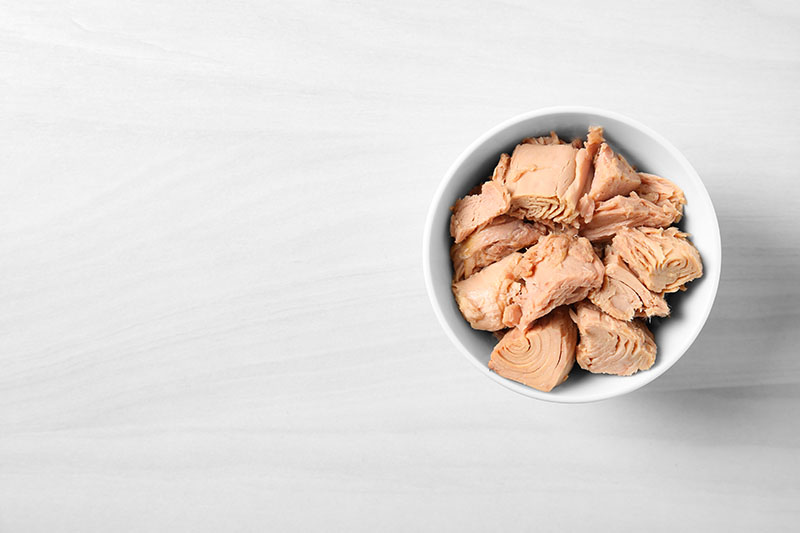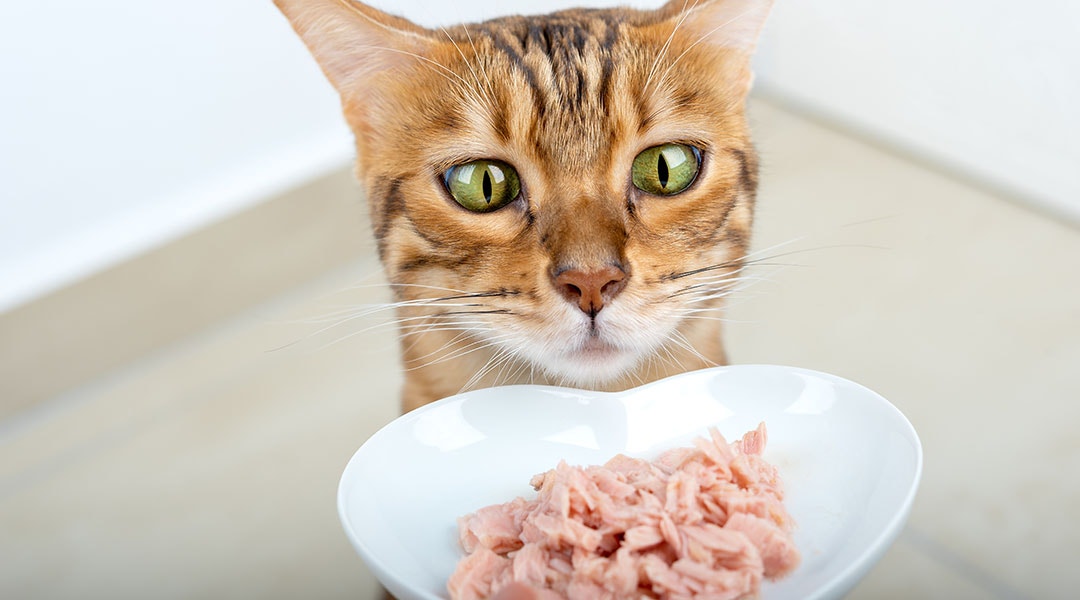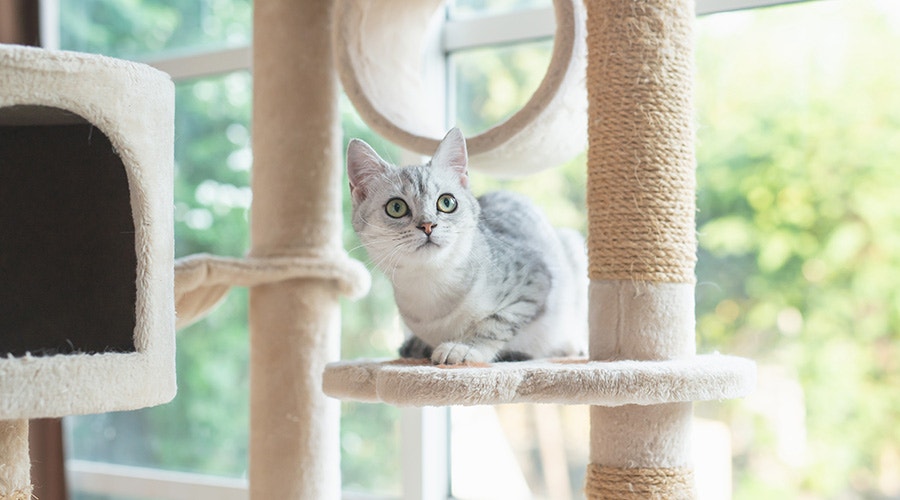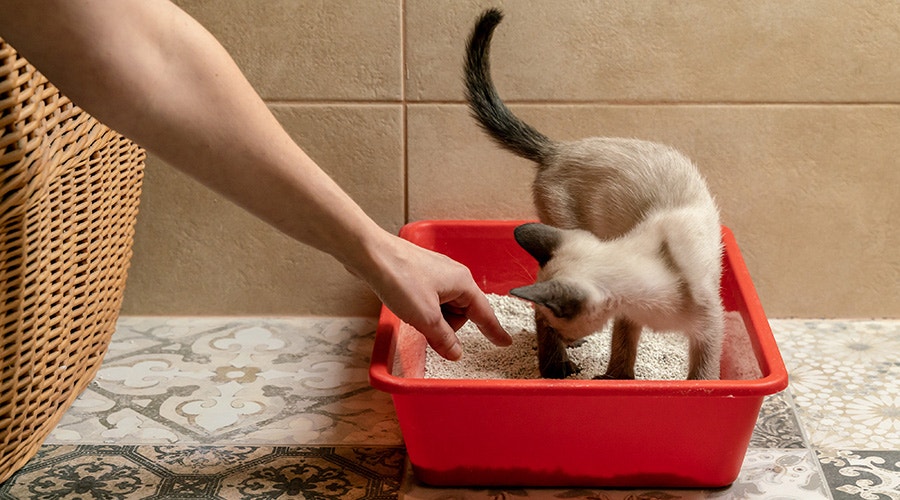You’ve probably heard that cats love fish, or at least seen them devouring one in a cartoon or on a TV advert. The image of a cat eyeing up a fish dish has become iconic, but it raises an important question: Is tuna safe for cats to eat? Many cats seem to have a taste for fish; in fact, stories of them being fed fish scraps go back to Ancient Egypt. But just because they crave it doesn’t always mean it’s the best choice for them. In this in-depth article, we’ll take a closer look at whether fish is a safe option for your cat, explore the pros and cons of feeding them tuna, and suggest some better alternatives to keep your furry friend happy and healthy. Keep reading to discover more.
Is Tuna Safe For Cats?
So, is tuna good for cats? Unless your cat has a specific allergy to tuna, it’s not toxic. That said, it’s not something they should be eating all the time, and it’s certainly not ideal as a regular part of their diet. The main concern with tuna is its mercury content. While a small amount of tuna every now and then is generally safe for your cat, too much can lead to mercury poisoning. It’s also worth noting that tuna made for human consumption is often in brine or oil, so it can be particularly high in salt and unhealthy fats. Try to buy tuna or other treats that are specifically formulated for cats and offer them to them in moderation, as part of a balanced diet.
What Are the Risks of Feeding Tuna to Your Cat
If you find yourself asking, “Can cats eat tuna?”, it’s crucial to understand the risks. One of the main risks of feeding tuna to your cat is mercury poisoning. This is because of the high levels of mercury found in tuna flesh that, over time and with excessive consumption, can lead to mercury poisoning in your cat. The symptoms include vomiting, loss of coordination, and, in severe cases, even damage to their nervous system.
There’s also a risk that your cat simply won’t get the right nutrients if they eat too much tuna and not enough of other food types. Cats require animal protein in their diet, and tuna alone won’t give them the necessary vitamins, minerals, and amino acids. For optimum health, cats need to be fed a complete and balanced diet that is tailored for the nutrients to meet the requirements according to the cat's life-stage and lifestyle.
Finally, feeding tuna to your cat too frequently can cause them to develop a strong preference and even an addiction to the meat. Once your cat gets used to eating tuna regularly, they may refuse to eat other, healthier foods. This can be frustrating for you as an owner and harmful to your cat’s overall health. You can reduce the risk of this happening by offering them a varied and balanced diet from day one.
If In Moderation, Are There Any Benefits of Tuna for Cats?
- High in protein: Tuna is a great source of protein, which is vital to a cat’s overall energy levels and healthy muscle development.
- Omega-3 fatty acids: Tuna is rich in omega-3 fatty acids, which can help improve your cat’s coat, keeping it shiny and smooth (depending on your cat’s breed and fur type).
- A tasty treat: most cats love the strong scent and flavour of tuna, making it an irresistible and high-value treat for training, or a reward for good behaviour. It can also be used as a tasty food to mix occasional medications into, like worming tablets.
Just like with any food, whether for adults or cats, moderation is key. Overfeeding your cat tuna may seem like a loving thing to do as you want to spoil them, but it can lead to serious health risks. Instead, try offering Dreamies as a safer alternative that provides the same level of enjoyment, without the risks associated with consuming too much tuna.

What Kind of Tuna Can Cats Eat Safely?
- Can cats eat tuna in water? Yes, this is generally the safest and healthiest option to purchase for your cat. Go for unsalted varieties that are made without additives.
- Can cats eat tuna in sunflower oil? Not really, and it should be avoided wherever possible, as tuna in oil is too fatty for your cat to eat. Consuming this type of canned tuna can result in your cat experiencing an upset tummy or further long-term health problems, including obesity.
- Can cats eat tuna in brine? This is another option that should be avoided, as the brine has a high salt content that is not good for your cat. It can cause issues such as dehydration or even serious kidney problems if they’re eating this version regularly.
- Can cats eat canned tuna or fresh? While fresh tuna is fine to give to cats if it’s in small portions, canned tuna is often a more convenient and safe option if it’s packed in water (not brine or oil as detailed above).
It’s important to remember that tuna should only be given to your cat occasionally as a treat, and in small portions. Limiting it to a teaspoon-sized amount is a good rule of thumb that ensures they aren’t overindulging.
How Often Can Cats Eat Tuna?
Tuna should only ever be given to cats as an occasional treat, never as a daily meal and certainly not regularly. Ideally, once a week is the maximum you should be offering them a tuna snack, as any more than that increases the risk of health issues like obesity, mercury poisoning, and nutritional deficiencies. Just follow these 3 rules when giving your cat some tuna:
- Keep it plain: Always choose to feed them tuna in water, not tuna packed in fatty oils or brine, or with any additives.
- Small portions: Limit the amount of tuna you’re giving them by measuring out a teaspoonful, once a week, maximum.
- As a treat, not a meal: Only offer your cat tuna as a treat or reward, not as a full meal.
Healthier Alternatives to Tuna
Variety is crucial in a cat’s diet, as it means they’ll be getting more balanced and nutrient-rich meals, which can only be a good thing. While it’s clear that tuna is a tempting and tasty treat for them, there are plenty of healthier alternatives for you to consider, such as:
- Commercial cat treats like Dreamies™: Specially designed with cats in mind, our treats are delicious and nutritionally balanced. Choose from a range of flavours, each providing a safe and tasty reward.
- Plain cooked chicken: This is a simple, protein-rich snack that your cat is bound to love eating. Make sure it’s cooked properly and without any oils, seasoning, or spices, as any added ingredients could irritate your cat’s digestive system.
- Specialised wet or dry foods formulated for cats: These specially formulated foods are meant to offer the right balance of proteins, fats, and vitamins that your cat needs to stay healthy. Always check the ingredients and choose high-quality foods.
FAQ - Can Cats Eat Tuna?
Is canned tuna ok for cats?
Canned tuna is ok for cats to eat, but only in small amounts. Many cats love the taste of tuna, but it should never be given to them as a daily meal. Avoid offering them canned tuna in brine or sunflower oil, as the high salt and fat content can be bad for their health.
Can cats eat tuna in the UK?
Yes, cats can eat tuna in the UK, but only on occasion. Owners should not feed their cats tuna regularly or in large quantities, as it can lead to health issues, including mercury poisoning. Always choose tuna in spring water, and make sure it’s free from added salt, oil, and additives.
Is it OK to give cats tuna with mayo?
No, owners shouldn’t feed their cats tuna with mayo, as mayonnaise is made from ingredients that aren’t suitable for cats. It’s best to stick with plain tuna in water, and only feed them a teaspoon-sized amount now and then.
What can I feed my cat when I run out of cat food?
If and when you run out of cat food, you can give your cat some plain, cooked meats like chicken or turkey. Don’t cook the meat in any oils, seasonings, or sauces. Try to restock their regular food as soon as possible.












